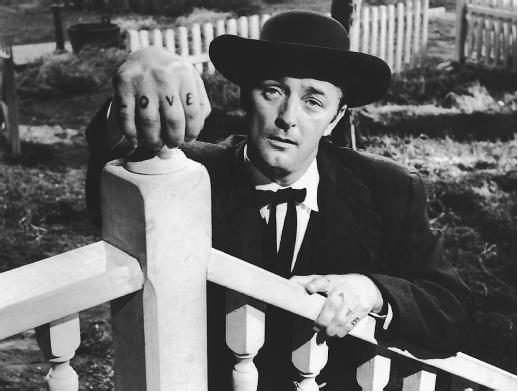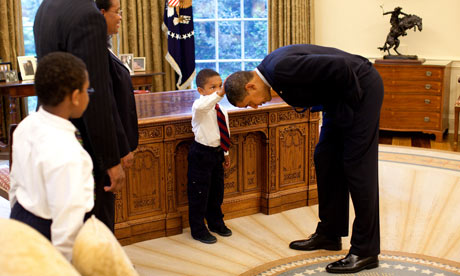Wednesday, November 14, 2012
fbi's surveillance state abuse is the real scandal...,
By
CNu
at
November 14, 2012
0
comments
![]()
Labels: cognitive infiltration , TIA , tricknology
partisan teabaggery pulled the petraeus story off the rails
Ms. Kelley, a volunteer with wounded veterans and military families, brought her complaint to a rank-and-file agent she knew from a previous encounter with the F.B.I. office, the official also said. That agent, who had previously pursued a friendship with Ms. Kelley and had earlier sent her shirtless photographs of himself, was “just a conduit” for the complaint, he said. He had no training in cybercrime, was not part of the cyber squad handling the case and was never assigned to the investigation.
But the agent, who was not identified, continued to “nose around” about the case, and eventually his superiors “told him to stay the hell away from it, and he was not invited to briefings,” the official said. The Wall Street Journal first reported on Monday night that the agent had been barred from the case.
Later, the agent became convinced — incorrectly, the official said — that the case had stalled. Because of his “worldview,” as the official put it, he suspected a politically motivated cover-up to protect President Obama. The agent alerted Eric Cantor, the House majority leader, who called the F.B.I. director, Robert S. Mueller III, on Oct. 31 to tell him of the agent’s concerns.
The official said the agent’s self-described “whistle-blowing” was “a little embarrassing” but had no effect on the investigation.
By
CNu
at
November 14, 2012
2
comments
![]()
Labels: Ass Clownery , partisan , What IT DO Shawty...
in measured results, how successful have Petraeus' strategies been in Afghanistan and Iraq?
By
CNu
at
November 14, 2012
0
comments
![]()
Labels: Ass Clownery , propaganda , warsocialism
Tuesday, November 13, 2012
global system of cultural supremacy...,
By
CNu
at
November 13, 2012
0
comments
![]()
Labels: A Kneegrow Said It
more myth than man...,
By
CNu
at
November 13, 2012
0
comments
![]()
Labels: you used to be the man
a whole lotta family bidnis being concluded...,
By
CNu
at
November 13, 2012
3
comments
![]()
Labels: Obamamandian Imperative , unspeakable
the cult of david petraeus...,
By
CNu
at
November 13, 2012
0
comments
![]()
Labels: propaganda , shameless , you used to be the man
fbi deemed petraeus affair part of criminal probe
By
CNu
at
November 13, 2012
0
comments
![]()
Labels: you used to be the man
Monday, November 12, 2012
is it the end of the road yet for the alliance of corporate oligarchs with poorly-educated southern suburban white trash religious fanatics?
By
CNu
at
November 12, 2012
1 comments
![]()
Labels: Collapse Casualties , theoconservatism , What Now?
mitt romney is the president of white male america...,
Team Romney has every reason to be shellshocked. Its candidate, after all, resoundingly won the election of the country he was wooing.
By
CNu
at
November 12, 2012
1 comments
![]()
Labels: Collapse Casualties , you used to be the man
where america's racist tweets come from...,

By
CNu
at
November 12, 2012
0
comments
![]()
Labels: cultural darwinism , de-evolution
the republican brain
By
CNu
at
November 12, 2012
9
comments
![]()
Labels: The Hardline , What IT DO Shawty...
Sunday, November 11, 2012
obviously I'm not the only one who sees this...,
The commodification of policing ... also has to do with the ways in which private policing and security can assist in the creation of commercial or residential spaces in which an exclusive, particularistic order comes to be defined and enforced. The warm, sanitised, consumer-friendly realm offered by shopping malls represents an important instance of the former. In contradistinction to the unpredictable, democratic ‘messiness’ of urban streets, malls make systematic use of private patrols and camera surveillance to create what Coleman and Sim call a moral order of consumption; something which entails the exclusion (on grounds of property, rather than criminal, law) of those ‘flawed consumers’ who are unwilling or unable to be seduced by the market. In respect of the latter, walled, gated, privately policed enclaves — currently most evident in Southern California and elsewhere in the United States, though also apparent (in embryonic forms) in parts of Britain — serve as a means of physical protection, and a vehicle for protecting the value of economic capital; both of which are predicated on the essential ‘unliveability’ of civil society beyond the walls. As such, the commodification of policing and security operates to cement (sometimes literally) and exacerbate social and spatial inequalities generated elsewhere; serving to project, anticipate and bring forth a tribalised, 'neo-feudal’ world of private orders in which social cohesion and common citizenship have collapsed.
By
CNu
at
November 11, 2012
1 comments
![]()
Labels: neofeudalism , Peak Capitalism , What IT DO Shawty...
cartel de sinaloa
By
CNu
at
November 11, 2012
0
comments
![]()
Labels: Collapse Crime , neofeudalism , psychopathocracy
los zetas
By
CNu
at
November 11, 2012
0
comments
![]()
Labels: Collapse Crime , neofeudalism , psychopathocracy
Saturday, November 10, 2012
Friday, November 09, 2012
oxytocin promotes human ethnocentrism..,
By
CNu
at
November 09, 2012
0
comments
![]()
Labels: What IT DO Shawty...
time to terminate the warfare state...,
By
CNu
at
November 09, 2012
1 comments
![]()
Labels: Obamamandian Imperative , warsocialism
Thursday, November 08, 2012
family business
By
CNu
at
November 08, 2012
0
comments
![]()
occupy movement outperforming red cross in hurricane relief?
By
CNu
at
November 08, 2012
0
comments
![]()
Labels: People Centric Leadership
Wednesday, November 07, 2012
fist tap arnach...,
By
CNu
at
November 07, 2012
0
comments
![]()
Labels: alkahest , cognitive infiltration
kresge auditorium november 1967
By
CNu
at
November 07, 2012
0
comments
![]()
Labels: American Original , entheogenesis , Living Memory
Tuesday, November 06, 2012
the republican id
By
CNu
at
November 06, 2012
1 comments
![]()
Labels: American Original , magical thinking , you used to be the man
if Obama wins, he will be the popular choice of latinos, blacks, single women and highly educated urban whites...,
A broad mandate this is not.
By
CNu
at
November 06, 2012
1 comments
![]()
Labels: Obamamandian Imperative
the permanent militarization of america
By
CNu
at
November 06, 2012
1 comments
![]()
Labels: unspeakable
Monday, November 05, 2012
mexican cartels enslave engineers to build radio network..,
By
CNu
at
November 05, 2012
7
comments
![]()
Labels: The Great Game
Sunday, November 04, 2012
obama was not politically produced by the black community...,
By
CNu
at
November 04, 2012
35
comments
![]()
Labels: Obamamandian Imperative
Saturday, November 03, 2012
an overcrowded city devoid of nature overcrowded by millions of increasingly desperate killer-apes...,
By
CNu
at
November 03, 2012
18
comments
![]()
Labels: de-evolution , killer-ape , What IT DO Shawty...
just-in-time consumption-supply chains - intensely vulnerable to slow infrastructure repairs...,
By
CNu
at
November 03, 2012
2
comments
![]()
Labels: Collapse Casualties , complications
hmm..., one wonders?
By
CNu
at
November 03, 2012
0
comments
![]()
Labels: Collapse Casualties , cultural darwinism , tactical evolution
Friday, November 02, 2012
Thursday, November 01, 2012
Radioisotope Stirling Engine Powered Airship for Low Altitude Operation on Venus
By
CNu
at
November 01, 2012
3
comments
![]()
Labels: global system of 1% supremacy , Possibilities
TALISE would paddle across Titan's vast hydrocarbon sea...,
By
CNu
at
November 01, 2012
10
comments
![]()
Labels: global system of 1% supremacy , Possibilities
Chipocalypse Now - I Love The Smell Of Deportations In The Morning
sky | Donald Trump has signalled his intention to send troops to Chicago to ramp up the deportation of illegal immigrants - by posting a...

-
theatlantic | The Ku Klux Klan, Ronald Reagan, and, for most of its history, the NRA all worked to control guns. The Founding Fathers...
-
NYTimes | The United States attorney in Manhattan is merging the two units in his office that prosecute terrorism and international narcot...
-
Wired Magazine sez - Biologists on the Verge of Creating New Form of Life ; What most researchers agree on is that the very first functionin...


















